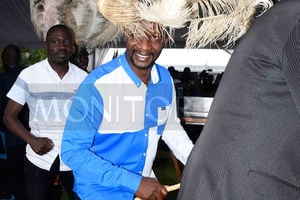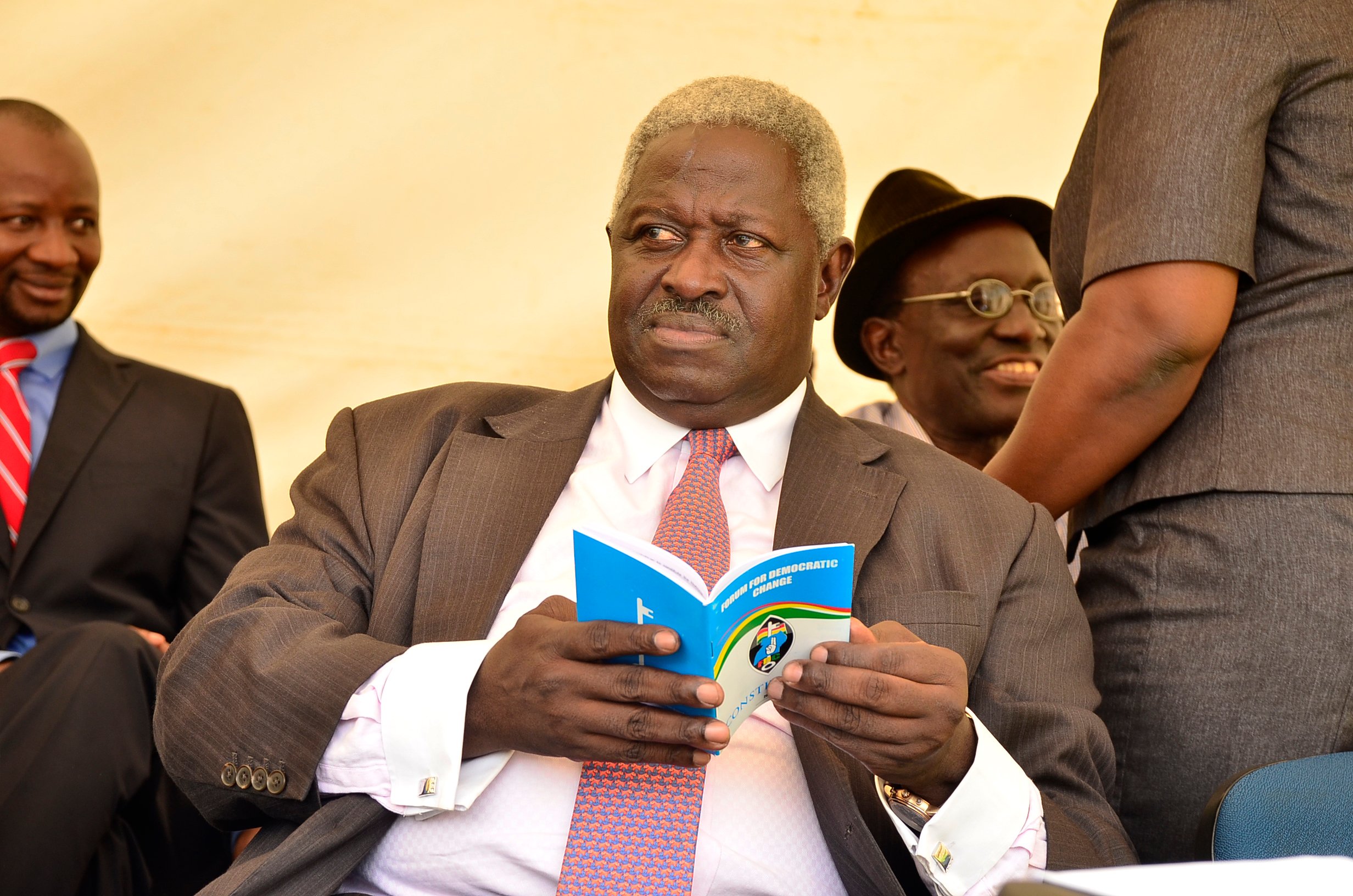
Left to Right: Former Leader of Opposition in Parliament Wafula Ogutu, FDC founding president Kizza Besigye, deputy Lord Mayor for Kampala City Doreen Nyanjura and other party members address the media at Katonga Road, Nakasero, Kampala, on August 7, 2023. PHOTO/ABUBAKER LUBOWA
The environment that nurtured post-independence Uganda was influenced by intense political activity, which led to the formation of the first nationalist political party, the Uganda National Congress (UNC), in 1952.
UNC was founded by six members; Ignatius Kangave Musaazi (its founding president), Abubaker Kakyama Mayanja, Stefano Abwangoto, Ben Okwerede, Yekosofati Engur and S.B. Katembo.
UNC was later drowned in intra-party conflicts, which gave birth to minor parties such as the Progressive Party under E. M. K Mulira in 1955, though it did not live long enough to make any political impact.
The UNC suffered two major breakaways; the United Congress Party, which was formed in 1956 and the polarisation between the Apollo Milton Obote faction and another faction loyal to Musaazi. Obote’s faction later allied with the Uganda People’s Union (UPU) to the present-day Uganda People’s Congress (UPC).
In 1961, during the first general election for the Legislative Assembly, UPC emerged winner, followed by the Democratic Party and Uganda National Congress.
Contemporary Uganda
Until the referendum in 2005, the elections were held on a non-party basis. The July 28, 2005, referendum restored the multi-party political dispensation.
Formation of FDC
The Forum for Democratic Change (FDC) party, which was formed in 2004, subsequently participated in the 2006 General Election, with Dr Kizza Besigye as its presidential candidate. The party emerged from a political pressure group known as Reform Agenda (RA).
Later, FDC proved as the National Resistance Movement’s major political opponent in the 2006, 2011 and 2016 elections.
The Uganda Federal Alliance (UFA)
The Uganda Federal Alliance (UFA) was registered as a political party in July 2010 by Ms Betty Kamya who left FDC in 2008. Ms Kamya contested as a presidential candidate during the 2011 General Election on the UFA party ticket.
Ms Kamya has since abandoned UFA to work under the NRM.
The 2011 elections saw the emergence of SUUBI, a pressure group, which was antagonistic to the Democratic Party under Norbert Mao. Ssuubi was more inclined towards Dr Kizza Besigye, the then FDC presidential candidate.
Go Forward
During the 2016 General Election, Mr John Patrick Amama Mbabazi, who had two years earlier been sacked as Uganda’s Prime Minister, contested against his former boss and long-term confidant, President Museveni, under the Go Forward pressure group.
Mr Mbabazi, who is one of the NRM founding members, was endorsed by the majority of The Democratic Alliance, which was composed of opposition political parties such as the Democratic Party (DP), and Uganda People’s Congress (UPC). Mr Mbabazi garnered 1.3 percent (136,519 votes) in the 2016 General Election. He has since been appointed by President Museveni as a special envoy to South Sudan and Ethiopia.
ANT
The Alliance for National Transformation (ANT) is a splinter party from the Forum for Democratic Change, with Maj Gen Mugisha Muntu as its president. ANT was founded on March 19, 2019, two years after a hotly contested intra-party presidential election against Mr Patrick Obi Amuriat in 2017.
Today, the chasm that founds FDC has continued to widen to an irreconcilable point that the two factions at Najjanankumbi led by Mr Patrick Oboi Amuriat and Mr Nandala Mafabi, and FDC Katonga led by Dr Besigye can no longer hold the same political ambition of taking power while co-existing under the same umbrella. FDC Katonga held its delegates’ conference on Monday at their offices in Kampala and agreed to form another political party six months after convening the delegates’ conference.








